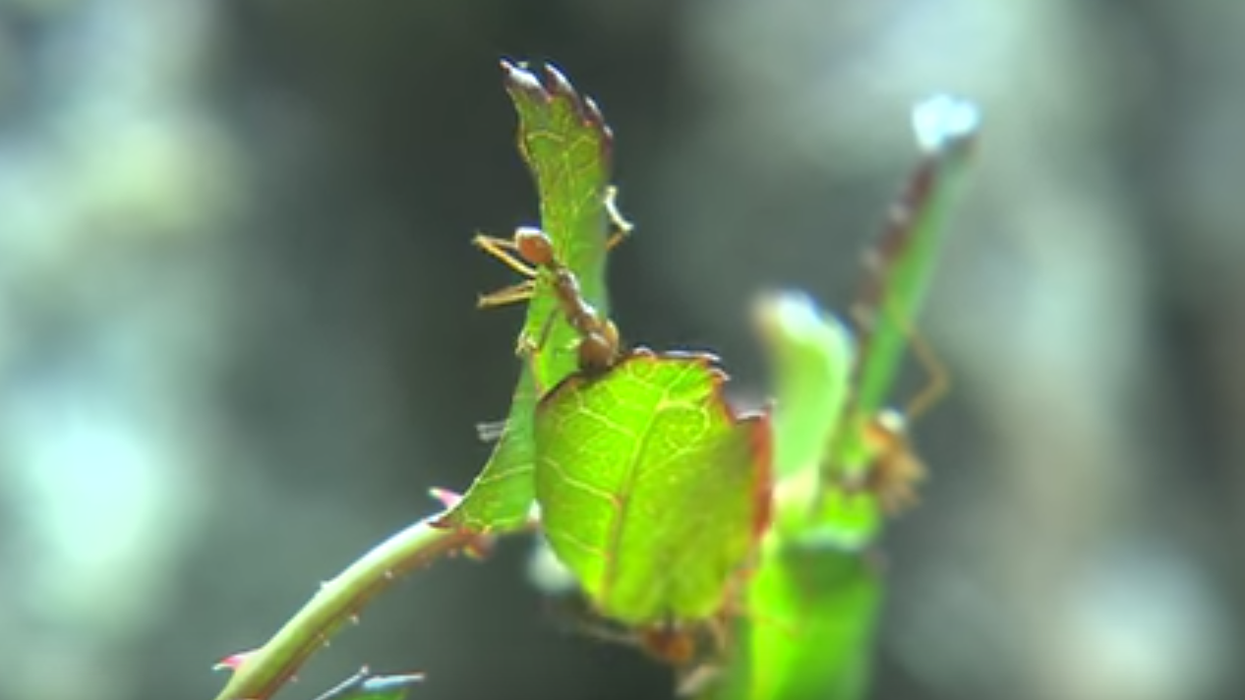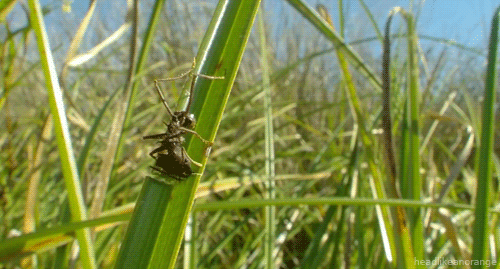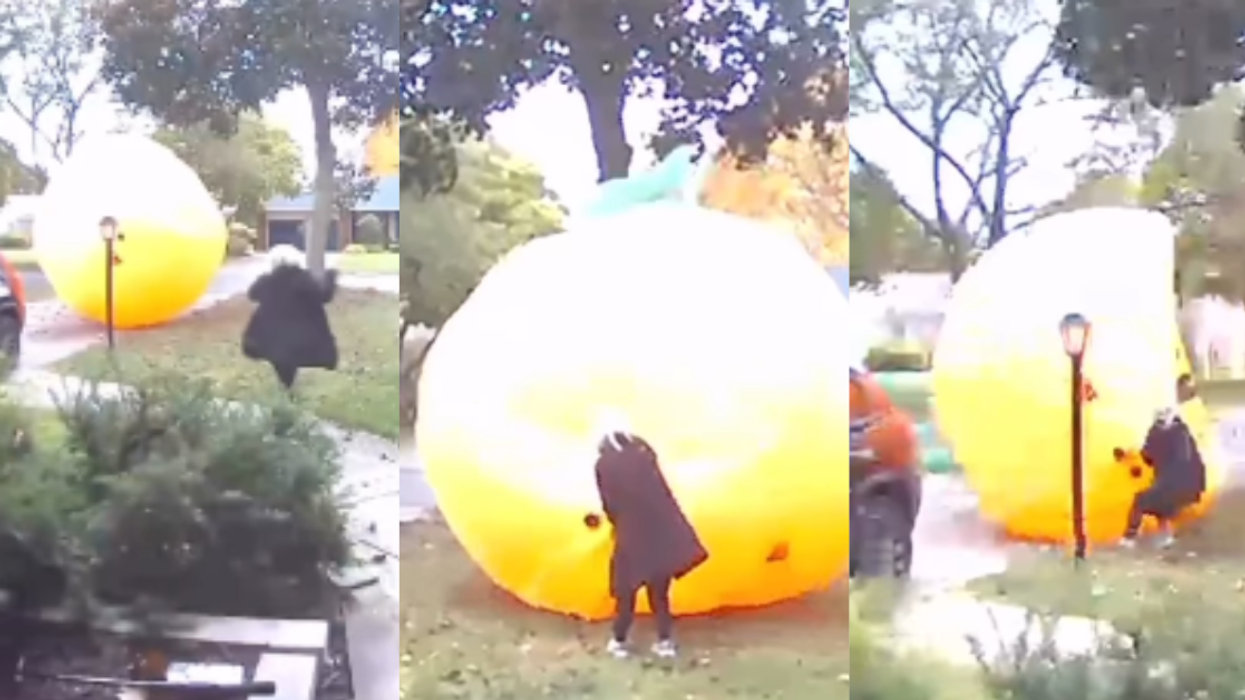Scientists just stumbled their way into some seriously cool science. A team from the University of Montana was in Costa Rica studying greenhouse gas emissions. The team was forced to evacuate one of their camp sites when leafcutter ants moved in. Equipment noted big changes to the environment around the ant's nest - namely that there was twice as much nitrous oxide as the surrounding area.
Leafcutter ants harvest huge amounts of vegetation as they move through their environment. The colony is hugely organized and deposits their waste in underground garbage piles. Those piles decompose and release incredible amounts of greenhouse gases.
The scientists explain:
Ants cut leaves from trees, take them underground and farm fungus that grows on the decomposing leaves, their primary food source. In doing that, they generate waste that must be disposed of. They do this like we do, meticulously moving their trash to something not unlike our landfills. In those landfills, microorganisms break down their trash, generating gases like carbon dioxide, methane and nitrous oxide, just like ours do.
- UM Professor Cory Cleveland
Leafcutter ant colonies are very organized, putting all their waste into colony dumps, much like our landfills or compost piles. These landfills create ideal conditions for the bacteria that make nitrous oxide, creating point emissions that can rival human-engineered systems such as wastewater treatment plants. While this doesn't mean that ants cause climate change, it does show a new way that sophisticated insect societies can engineer their ecosystems.
- Fiona Soper
The study says the gases given off are comparable to the levels you would see in a wastewater treatment plant or the manure pond in a cattle field. Cows - or more specifically cow farts - are known to have high levels of greenhouse gases, so it was a surprise that a group of ants could be capable of the similarly high numbers. Scientists on the study stressed that the ants are not a major source of climate change - they only temporarily altar the area immediately around the nest.
That shouldn't come as a shock to anyone with an interest in the amazing insects, they're well known for the way they change their environment. Their sophisticated colonies strip vegetation, create tunnels, change the soil composition, cultivate crop, engage in chemical warfare with other insects and they create such a unique climate in their nests that other animals have evolved to live in them.
Peep this almost adorable bug - it's a kind of roach and lives in the leafcutter nests.
Twitter seems pretty fascinated by these ants - and ready to defend them from any blame.









 @people/Instagram
@people/Instagram @people/Instagram
@people/Instagram @people/Instagram
@people/Instagram @people/Instagram
@people/Instagram @people/Instagram
@people/Instagram @people/Instagram
@people/Instagram @people/Instagram
@people/Instagram @people/Instagram
@people/Instagram





 @AuntSassyX
@AuntSassyX
 @dontburndinner/Instagram
@dontburndinner/Instagram @dontburndinner/Instagram
@dontburndinner/Instagram @dontburndinner/Instagram
@dontburndinner/Instagram @dontburndinner/Instagram
@dontburndinner/Instagram @dontburndinner/Instagram
@dontburndinner/Instagram @dontburndinner/Instagram
@dontburndinner/Instagram @dontburndinner/Instagram
@dontburndinner/Instagram @dontburndinner/Instagram
@dontburndinner/Instagram @dontburndinner/Instagram
@dontburndinner/Instagram @dontburndinner/Instagram
@dontburndinner/Instagram @dontburndinner/Instagram
@dontburndinner/Instagram @dontburndinner/Instagram
@dontburndinner/Instagram
